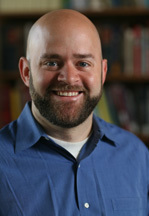
Carter Snead, professor of law at the University of Notre Dame Law School, has been appointed to a four-year term as one of 36 independent experts on the International Bioethics Committee (IBC) of the United Nations Educational, Scientific and Cultural Organization (UNESCO).
The committee is the only forum in the United Nations system devoted to reflection on bioethics and public policy.
It is an honor to be appointed to this body,Snead said.It is charged explicitly to reflect on the most interesting and controversial questions at the nexus of law, science and ethics.I look forward to working with the other distinguished members of the body, and more broadly, with the delegations of all of UNESCOs 191 member states and permanent observers.
The committee, which meets annually, is charged with reflecting on the ethical and legal issues raised by research in the life sciences and their applications and with encouraging the exchange of ideas through education. It also cooperates with the international governmental and non-governmental organizations concerned with the issues raised in the field of bioethics as well as with the national and regional bioethics committees and similar bodies.
The most recent example of the IBCs work in bioethics was the 2005 adoption of the Universal Declaration on Bioethics and Human Rights, meant to provide ethical guidance to member states and individuals working in medicine and the life sciences. Snead served as the chief negotiator and head of the U.S. delegation to UNESCO for the development of this declaration.
Snead’s scholarship explores the possibility, mechanisms and wisdom of the governance of science, medicine and biotechnology according to ethical principles.
In 2002 Snead accepted the position of general counsel for the Presidents Council on Bioethics. In that capacity, he advised the chairman and council members on the legal and public policy dimensions of numerous ethical questions arising from advances in biomedical science and biotechnology. He was the principal drafter of the council’s 2004 report, “Reproduction and Responsibility: The Regulation of New Biotechnologies,” a comprehensive critical assessment of the governance (both public and private) of the activities at the intersection of assisted reproduction, human embryo research and genetics. Snead continues to serve the council as an expert consultant.
_ Contact: Professor Snead at 202-607-0963 (cell); 574-631-8259 (office) or_ " Snead.1@nd.edu ":mailto:Snead.1@nd.edu
TopicID: 27326